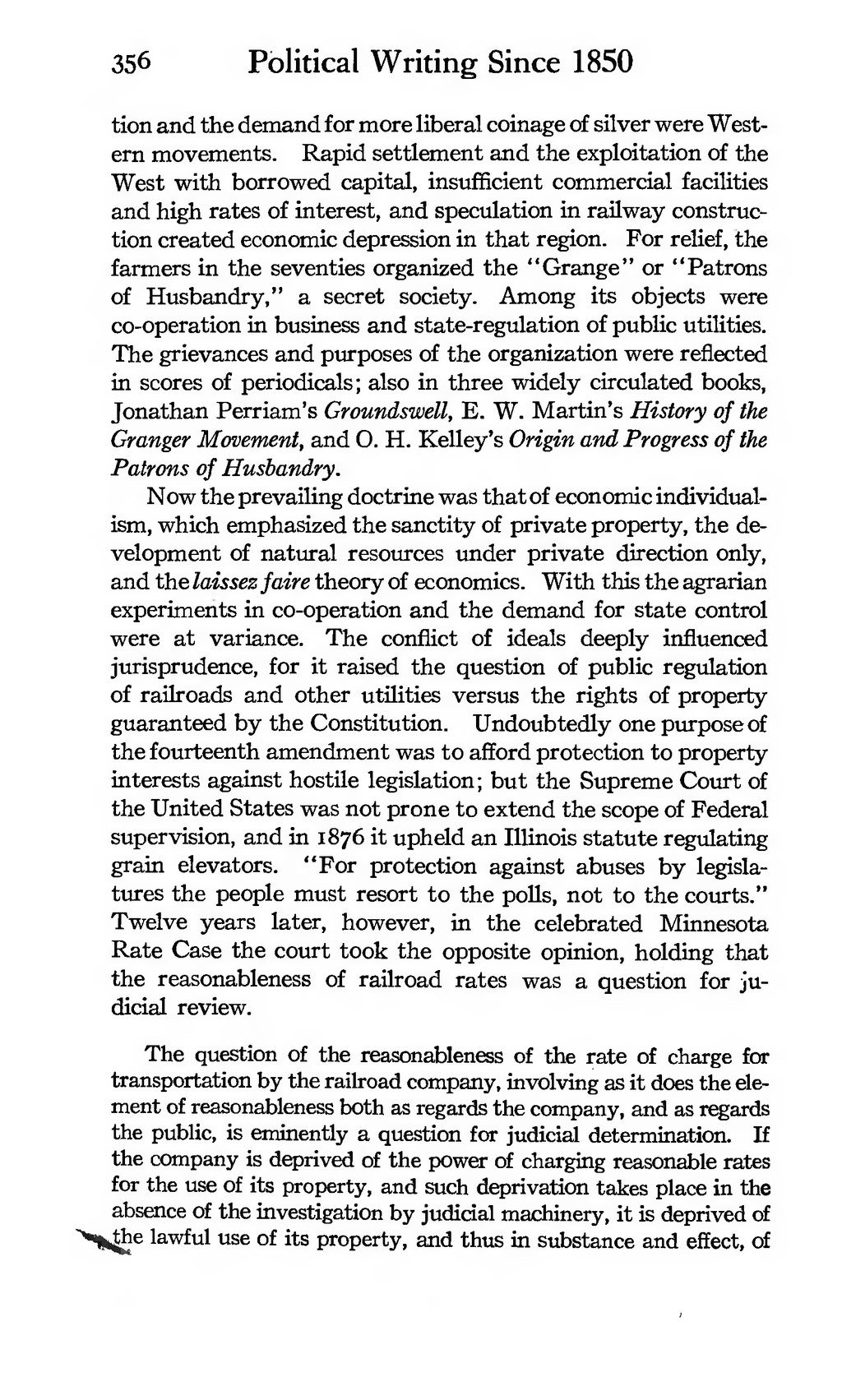tion and the demand for more liberal coinage of silver were Western movements. Rapid settlement and the exploitation of the West with borrowed capital, insufficient commercial facilities and high rates of interest, and speculation in railway construction created economic depression in that region. For relief, the farmers in the seventies organized the "Grange" or "Patrons of Husbandry," a secret society. Among its objects were co-operation in business and state-regulation of public utilities. The grievances and purposes of the organization were reflected in scores of periodicals; also in three widely circulated books, Jonathan Perriam's Groundswell, E. W. Martin's History of the Granger Movement, and 0. H. Kelley's Origin and Progress of the Patrons of Husbandry.
Now the prevailing doctrine was that of economic individualism, which emphasized the sanctity of private property, the development of natural resources under private direction only, and the laissez faire theory of economics. With this the agrarian experiments in co-operation and the demand for state control were at variance. The conflict of ideals deeply influenced jurisprudence, for it raised the question of public regulation of railroads and other utilities versus the rights of property guaranteed by the Constitution. Undoubtedly one purpose of the fourteenth amendment was to afford protection to property interests against hostile legislation; but the Supreme Court of the United States was not prone to extend the scope of Federal supervision, and in 1876 it upheld an Illinois statute regulating grain elevators. "For protection against abuses by legislatures the people must resort to the polls, not to the courts." Twelve years later, however, in the celebrated Minnesota Rate Case the court took the opposite opinion, holding that the reasonableness of railroad rates was a question for judicial review.
The question of the reasonableness of the rate of charge for transportation by the railroad company, involving as it does the element of reasonableness both as regards the company, and as regards the public, is eminently a question for judicial determination. If the company is deprived of the power of charging reasonable rates for the use of its property, and such deprivation takes place in the absence of the investigation by judicial machinery, it is deprived of the lawful use of its property, and thus in substance and effect, of

